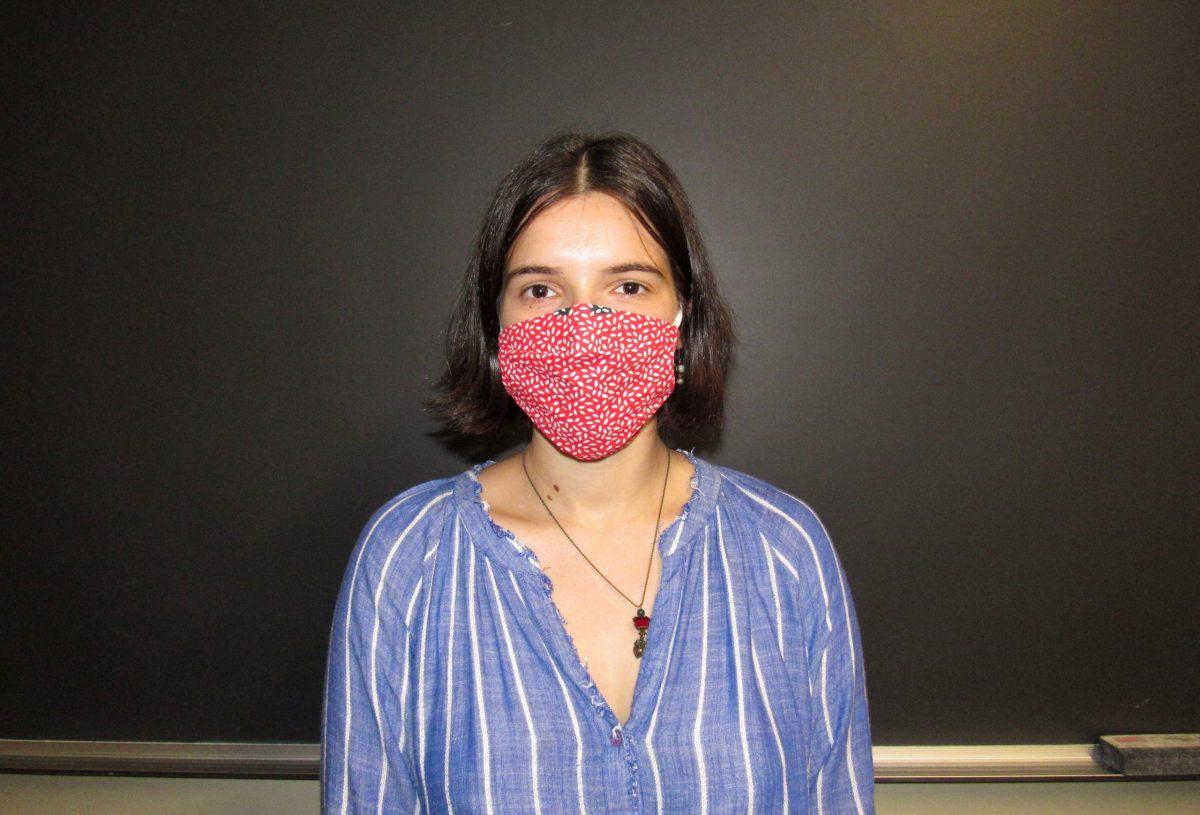Teaching Assistant Lucile Orain and her Wofford experience
As the world was consumed by the COVID-19 pandemic for the better part of the last year, international plans took a backseat for many, who were focused instead on domestic travel and, in many cities, curfews and stay-at-home orders. The already daunting prospect of traveling abroad, let alone working or studying while doing so, exacerbated by a pandemic ensured that most would not even entertain the idea of attempting to travel outside the country.
However, an exception to the case found its way to Wofford’s campus in the form of Lucile Orain, who is serving as a Teaching Assistant for the French department for the 2020-21 academic year.
Migration from France to the United States was no simple process. “It was hard” Orain explained. “I needed a visa to go here, and it was very hard because with the COVID (sic) [pandemic] I couldn’t get an appointment and then I had to be an exception, because if you want to come here now from France you need to be like a very specific program.”
There were logistical hoops to jump through as well, Orain added, saying, “I had to show I was going to do something live and not only the internet, like school events and things like that.”
Anxiety permeated from the get-go about the nature of her stay in the U.S. “I remember I arrived at Atlanta and at the airport I spent 20 minutes wondering if I was going to go or if they were going to send me back to France,” Orain remarked before elaborating on a confusing experience with United States customs.
Orain, 22, holds both a bachelors and a masters degree in Clinical Psychology from the University of Nantes. She obtained her degrees in a joint continuous program which, according to Orain, is common in France. Despite her credentials, the agency that sent her was not very concerned with that.
“In France I did that, and in the U.S. they don’t ask you anything about your background, they just want you to be studying, and then you can go,” Orain said.
The culture shock of moving from one country to another was a transition that had more to do with realizing false stereotypes than anything else. “I think it’s amazing. People here are very nice,” Orain said. “In France, we have this presentation of American people that is not accurate because the media is always portraying people here in the worst way.”
Orain explained, “you always see the people that are redneck in the media. I knew it was not true but I was very surprised how kind people were. They all asked me how I felt and ‘how was the process’ and I was like a little bit overwhelmed with all the support I got here, and with the process Sara [Milani] was amazing.”
Orain said some had told her, “the way of living would be similar to France, and it’s very different. So it’s really interesting to discover all this.”
Teaching given the adverse circumstances has presented some challenges. “I think they are stressed, so stressed,” Orain said of the students she has worked with, “and speaking with the masks can be very difficult because it’s difficult for me to hear them so I ask them all the time to repeat. So it’s hard for them, they don’t hear me very well, and sometimes I do some office hours on Zoom, and Zoom is not good.”
“It’s difficult for them and I try my best to help them with that but sometimes I just, I don’t know what to do.”






























